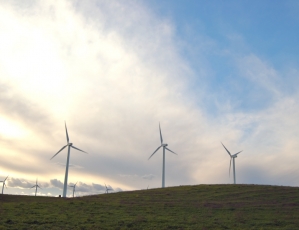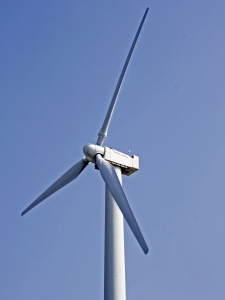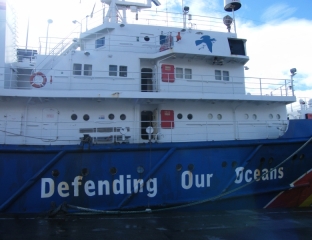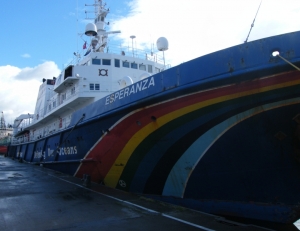Nuclear Power has always been a contentious issue. There have always been advocates for and against. International concerns about Climate Change, an impending energy crisis and the nuclear accident in Japan have highlighted the issues concerned. Jonathan Hamilton Russell writes.
For CND there has always been the concern of the link between the technology of Nuclear Power and Nuclear Weapons. The Sustainable Development Commission chaired, at the time by Jonathon Porrit in 2006, produced a report for the then Labour Government stating unanimously that, following a detailed analysis of sustainable development factors, that Nuclear was not the preferred option.
This followed a Government White Paper in 2003 which had concluded that Nuclear Power was not an Economic Option. Several days after the Sustainable Development Commission reported, Tony Blair announced that Nuclear Power was to be an essential component of our future Energy Provision.
Recently high profile environmentalists James Lovelock and George Monbiot have been converts to Nuclear Power given their concerns about Climate Change and the resulting requirements to cut back on Carbon omissions.
The SNP have long championed alternative energy and have been against Nuclear Power, as have the Scottish and English Green Parties, Greenpeace and Friends of the Earth. Jonathon Porritt, who was sacked as the chair of the Sustainable Development commission still sees alternative energy and energy conservation as the way forward.
We have had until recently a bonanza of cheap energy in Scotland and the UK and the public has become used to cheap energy and the ability to regularly drive, fly and live and work in centrally heated buildings. This situation will soon end. The reality of peak oil and the need to import Russian Gas have yet to be admitted to the public by most politicians, and the expectations of the general public is that the status quo remains. Whatever decisions are made, there will be inevitable opposition to both nuclear power and alternative energy. Climate Change has already gone down the political agenda.
We have failed to invest and research sufficiently, concentrating our efforts on oil, gas and also nuclear
The costs of producing both Nuclear Power and Alternative Energy will be much higher than present costs and will require both increased public subsidy and will mean rising costs for the consumer. The costs are likely to reduce as we become more expert at production of nuclear or its alternatives.
The costs of South Korea’s Nuclear Reactors went down by 28% by the time they produced their 7th and 8th Reactors.
Safety measures have improved – the Reactors in Japan are 40 years old – and the safety technology no longer requires power from outside. However, the risk of human error intentional or otherwise and unknown hazards still exist. The costs of insurance are high and do not include de-commissioning. The potential hazards of storage of spent Uranium still remain to be seen. Only three councils have agreed to storage underground – all three being in Cumbria.
There is however still uncertainty of risk in relation to this method of storage. Storage and waste costs still have to be borne by government. Increased use of Uranium will lead to shortages as estimates are that about 100 Years worth still remain, and when it runs out what will happen?
There are concerns and restrictions in many countries regarding the mining of Uranium, and Kazakhstan – a Muslim country on Iran’s border – has the main stocks. The costs of Uranium are likely to increase if there is more demand. There has historically been considerable contamination of local communities when mining has taken place, and even with greater safety measures some risks will remain.
The alternative is increased energy conservation and the use of renewables. As identified by the Sustainable Development Commission the UK – and in particular Scotland – has the potential with tidal energy, wind power, carbon capture, waste and power, and solar developments to cover our energy needs.
However there are challenges. We have failed to invest and research sufficiently, concentrating our efforts on oil, gas and also nuclear. There would have to be significant resources put into research and design, and if we were also putting our efforts into nuclear then opportunities with renewable would be lost.
The recession will mean there is less money to invest. A much better use than cutting the cost of petrol in the long term would have been to use the money from taxing oil companies to pay for the development of renewable energy resources.
There would be problems both with nuclear and renewable as to where to place energy resources.
There has been significant public opposition both to nuclear and wind developments. The Crown Estate commission has powers in relation to developing resources at sea which would have to be overcome.
The North-East of Scotland has a huge potential for the development of renewable energy and the area would benefit from more focus on its development. The main problem I would suggest in relation to our future energy provision, is public expectations and politicians needs in terms of re-election. People have become used to private transport and cheap central heating and whichever way we go will be unpopular.
My own conclusion is, that spending on Nuclear Energy developments will divert money that could be spent on energy efficiency and renewable energy. There is a challenge in relation to needs in terms of peak usage – such as before Christmas – but these could be overcome by us linking into a European network of energy.
In historical terms Nuclear Power is just another short term fix whilst the opportunity of renewable energy will always be with us. In some countries which are landlocked, Nuclear may be the only possible route but given what has happened in Japan potential risks of location would have to be taken into account.
Pictures: © Mark Rasmussen | Dreamstime.com, © Devy | Dreamstime.com



